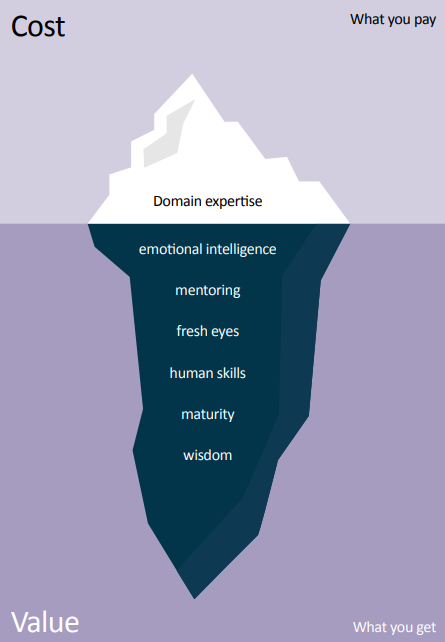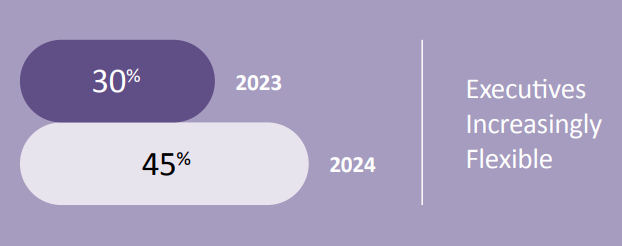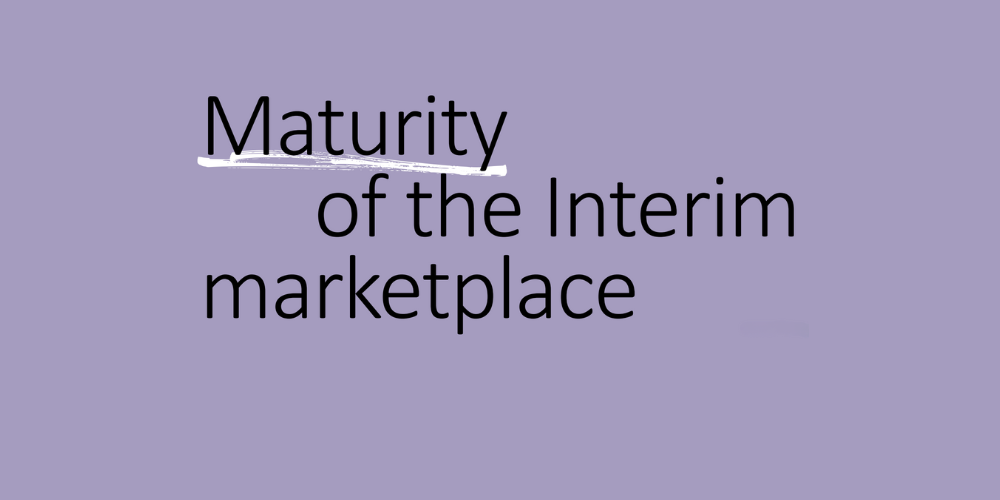In today’s dynamic business landscape, the role of Interim Executives has evolved significantly, offering organisations a flexible and strategic solution to navigate economic uncertainties and drive transformation. This blog explores the maturity of the interim marketplace and the benefits of Interim Executives, highlighting key trends and insights from Watermark’s 2024 Interim Executive Survey.
Walking the Talent Tightrope
Balancing stability and adaptability is crucial for organisations in this environment. The goal is to protect the business in the near term while positioning it for long-term success. Thirty-four percent of our Interim Executive Survey respondents believe Agility and Adaptability are the most valued human skills they can bring to an organisation.
By hiring an Interim Executive, it gives organisations the agility needed to navigate market fluctuations, industry disruptions and other unforeseen challenges. This approach allows companies to access a diverse talent pool, who are available immediately, to maintain operational efficiency, fill a skills gap and manage risks effectively without the commitment of permanent employment.
Hire. Different. Interim. Solutions.
In the current dynamic environment, organisations must respond quickly and strategically to multifaceted challenges. Interim Executives have emerged as indispensable assets, providing targeted expertise and flexibility to address critical needs.
Key reasons for engaging Interim Executives:
Business Transformation and Change Leadership: Interim Executives lead cultural changes, functional adjustments, restructurings, and complete transformations of business operating models. This year, 34% of Watermark’s Interim Executive Survey respondents were engaged in assignments related to business transformation and change leadership.
Crisis Management: Interim Executives serve as crisis management resources, bridging gaps in the C-suite during prolonged hiring processes.
Subject Matter Experts: Interim talent fills skills gaps within organisations when faced with specific business events or projects, ensuring continuity without the need for full-time hires.
Fractional Executives: They play pivotal roles in strategic transactions, enhancing decision-making during high-stakes events.
Innovation Champions: Interim Executives can lead innovation hubs amid short-term market uncertainties, ensuring continuous progress while the C-suite focuses on immediate challenges.
The Evolution of Interim Contracts
The length of contracts for Interim Executives has increased, with more professionals engaged in longer-term assignments.
This trend is driven by the need for transformational initiatives, business model restructuring, and the demand for specialised skills. Longer contracts provide stability and enable Interim Executives to make a lasting impact on organisational change.
The Reskilling Academy Every Organisation Needs
Watermark’s 2024 Interim Executive Survey shows that the top 3 business areas requiring urgent attention to address skills gaps in 2024 and beyond are Executive Management and Leadership (54%), Cybersecurity (54%) and Data Analytics (33%).
This shows just how crucial effective leadership, cybersecurity and data analytics are for organisational success. Organisations must invest in these areas by prioritising upskilling and hiring in these critical areas. Interim Executives are a great way to achieve this without the fixed term cost of permanent/long-term hires.
Cost is What you Pay, Value is What you Get
The primary obstacle in hiring Interim Executives, as perceived by 38% of our survey respondents, is the cost, which is viewed as prohibitively expensive. Despite the common belief that engaging an Interim Executive is financially unfeasible, the value Interim Executives bring to organisations far outweighs the cost. They bring emotional intelligence, mentoring, fresh eyes, human skills, maturity, and wisdom.

It is important to note that Interim Executives are not seeking permanent roles within the organisation. Their goals are to make a positive impact, deliver results and then move on to the next challenge.
Mastering the Shift to an Interim Career
In this year’s Interim Survey, 45% of respondents express a preference for whichever opportunity is most interesting regardless of whether it is interim or permanent. This shift reflects a heightened focus on security within the current uncertain environment and a priority for meaningful work, above all else.

Transitioning to an Interim Executive career requires careful financial planning and commitment. Executives must balance the allure of variety, flexibility and meaningful work with the need for a realistic income. Commitment to an interim assignment is paramount. Understanding client expectations and maintaining professionalism are key to thriving in this way of work.
Conclusion
The interim marketplace has matured, offering organisations a strategic advantage through flexibility, agility, adaptability, and business transformation. As the demand for Interim Executives continues to rise, businesses must recognise the value these professionals bring in navigating uncertainties and driving growth. By leveraging the expertise of Interim Executives, organisations can effectively respond to multifaceted challenges and position themselves for long-term success.
To find out more about how Interim Executives can help your organisation, please reach out to the Interim Team here.
